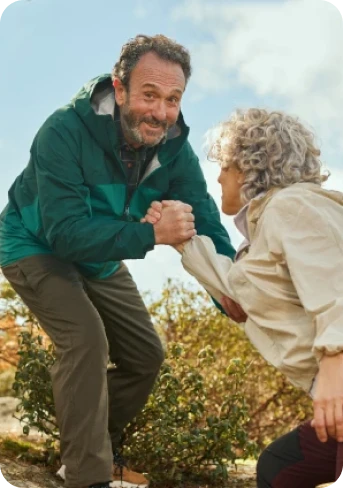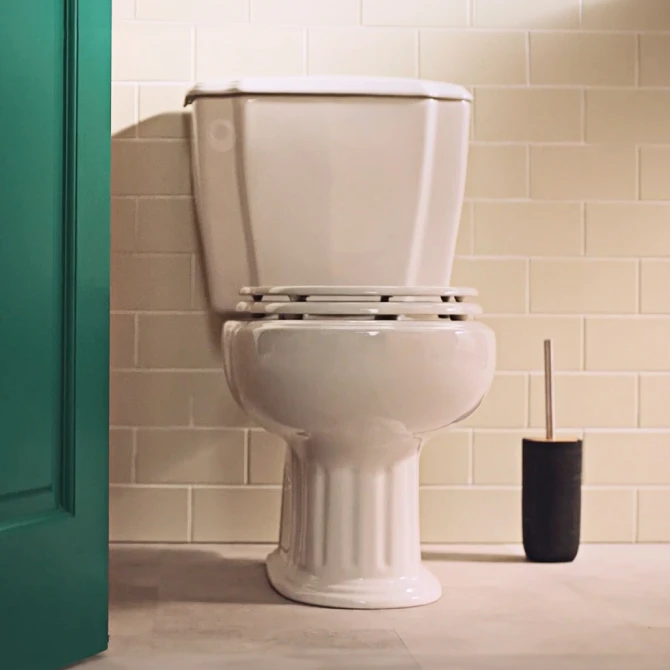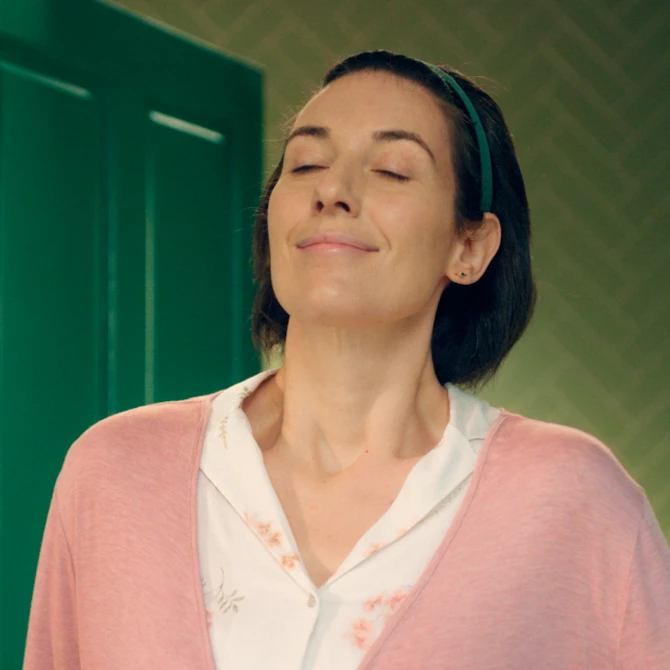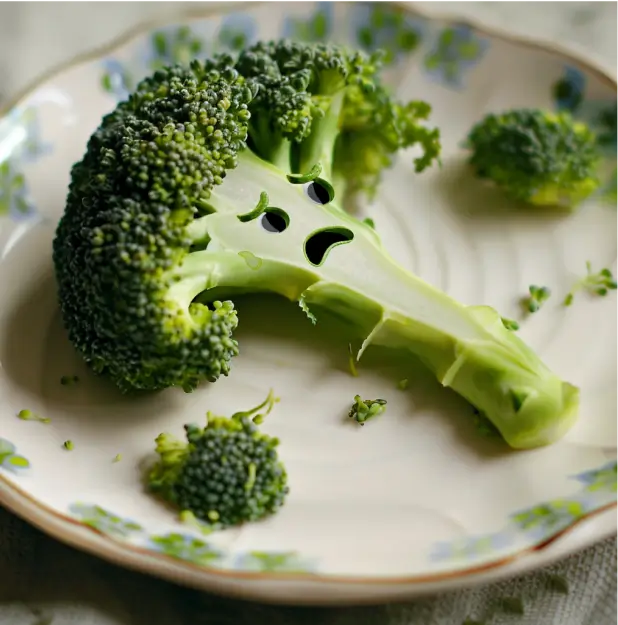
Elderly constipation: cause, symptoms, prevention, relief

Most people give little thought to their digestive system, but constipation is a common problem, and even more so in the elderly. There are several reasons for this, such as medication, underlying conditions, and slower digestive transit time, to name a few.19 This refers to the time it takes for food to move through the digestive system.
You might be retired, relishing all the extra time. Maybe you plan to travel, or to complete some items on that all important bucket list.
Well, sad to say, constipation can certainly put a stop to those plans. When things aren't moving smoothly internally, it’s likely to slow things down externally as well.
Constipation in old age is a real pain, but thankfully very manageable. Keep reading to learn more.
How is constipation defined?
You are likely constipated if you experience the following:1
Constipation Checklist:
use the bathroom less than three times a week
your poo is hard, solid and lumpy
your poo is difficult to pass
your bowel movements seem unsatisfactory
you frequently experience pain and bloating
Constipation is categorized as primary or secondary:
Secondary constipation
Secondary constipation is when the condition is due to an identified cause, such as medical condition or medication.
Gastrointestinal issues such as bowel obstruction or inflammatory bowel disease, neurological conditions, diabetes, and other medical situations may trigger constipation.
Medications, such as opioids, NSAIDs, supplements, heart medication, antacids, and antidepressants, may also be to blame.5,6

Which Dulcolax® is right for you?
Answer few questions about your poop routine and we'll suggest the right product for you.
What are the consequences of constipation in older adults?

Older adults shouldn't ignore constipation as it can have life-threatening consequences in some cases. Fecal impaction is a complication in which poop accumulates after severe cases of constipation and can't be expelled. This is a very serious condition that can cause bowel perforations or intestinal obstructions.
The elderly are prone to the secondary effects of constipation, such as hemorrhoids that develop after repetitive straining or as the result of some medications.6,7,8
When to see the doctor about constipation?
Once you reach the age of 65 it’s essential to consult a doctor if you’re experiencing problems going to the bathroom. A comprehensive medical checkup will help to identify the specific causes behind your constipation, and rule out any more serious disorders.2,9
How does food move through my gastrointestinal tract?
Gastrointestinal (GI) tract organs have a layer of muscle that allows their walls to move. This movement, called peristalsis, can be compared to an ocean wave moving through a muscle.7 As a result, food and liquid are mixed and pushed through the GI tract.8
How does my digestive system break food into small parts my body can use?
As food moves through your digestive tract, it is broken down into smaller pieces through motion (chewing and squeezing) and the mixing of digestive juices. These juices include stomach acid, bile, and enzymes.8
What happens to digested food?
In the small intestine, digested food molecules, water, and minerals are absorbed. Most materials enter the bloodstream upon absorption. Here, they are transported to other body parts for storage or chemical modification. The sugars, amino acids, fatty acids, and glycerol in these substances allow your body to produce energy, grow, and repair cells.8
Relief options for constipation for elderly patients
3 out of 5 Americans never talk to their doctors about constipation. Don't become another statistic. Constipation can be managed, and the first step is to talk about it.
There are several strategies for dealing with constipation, including:3
Pharmacologic options
Bulk agents
Bulking agents increase the size of your poop and the frequency you go to the bathroom. Maintaining adequate fluid intake is important alongside fiber supplementation, to avoid excessive bulk.18
Stool softeners
Stool softeners draw more water into your stool so that it becomes softer, reducing the need to strain. They’re helpful for older adults with lesions that may be causing discomfort while pooping.11 Dulcolax stool softeners is one option for you in this category.
Other agents
In some cases, prescription medications may be needed to treat constipation. They include serotonin agonists, which increase neurotransmitters and enhance the efficiency of eliminating waste products from your body. Prokinetic agents are used for treating severe constipation.
Special medications may help with constipation caused by opioid use. All these agents have potentially dangerous side effects and contraindications, so their use in older adults requires careful medical monitoring.9,15
Nonpharmacologic options
Lifestyle changes
Exercise is good for you. Older adults who implement an exercise regimen as part of their lifestyle have improved their constipation. Movement stimulates the colon, which boosts waste elimination.9
Increase dietary fiber
An appropriate diet for constipation in old age includes whole grains, fruits, and vegetables. These are high-fiber foods, and fiber increases stool mass, generating a cascade of stomach reactions that urge you to poop. Fiber needs to be accompanied with adequate fluid intake and increased gradually to avoid adverse events such as bloating, distention, flatulence and cramping9,19
Increase fluid intake
Water plays a key role for a proper gut functioning, therefore adequate fluid intake is needed as part of a healthy lifestyle. Elderly people tend to feel the sensation of thirst to a lesser degree, even when dehydrated. Therefore, maintaining adequate fluid intake is even more important, especially when accompanied with fiber and bulking agents. In cases of cardiac or renal disease fluid intake needs to be monitored.18, 20
Improve toilet habits
Try to poop at the same time every day. After breakfast, a reflex in your belly activates sluggish bowels in old age, so take advantage of this.
Your position on the toilet also affects your ability to poo. Sit with legs spread apart and lean forward. Squatting can also be helpful, as this angle makes it easier for poo to slide out.9,17
The most important points to remember on constipation in old age
Constipation in elderly people is common, but this doesn’t mean you should accept it as inevitable. It’s possible to maintain good digestive health if you consult a health care professional about the best options available to you.
Get rid of your constipation so that you can move around more freely in your golden years, and start ticking off the items on that all important bucket list.
* Works in 30 minutes to 6 hours
Disclaimer:
Partly generated by Gen AI
Sources
- Poitras, P., Bouin, M., Faure, C., Dapoigny, M. (2022). Constipation. In: Poitras, P., Bilodeau, M., Bouin, M., Ghia, JE. (eds) The Digestive System: From Basic Sciences to Clinical Practice. Springer, Cham. https://doi.org/10.1007/978-3-030-98381-9_15
- Conlon, C.P. et al. (2020) Oxford Textbook of Medicine. Oxford: Oxford University Press.
- Oh, Sun Jung MD1; Fuller, Garth MS2; Patel, Devin MD1; Khalil, Carine PhD2; Spalding, William MS3; Nag, Arpita PhD, MBA, MS3; Spiegel, Brennan M. R. MD, MSHS1,2,4,5,6; Almario, Christopher V. MD, MSHPM1,2,4,5. Chronic Constipation in the United States: Results From a Population-Based Survey Assessing Healthcare Seeking and Use of Pharmacotherapy. The American Journal of Gastroenterology 115(6):p 895-905, June 2020. | DOI: 10.14309/ajg.0000000000000614
- Alneimat, K.S., Alshalan, S.M.S., Almansour, S.A.N. and Alotaibi, S.M.S., 2020. An Overview of Constipation Management in the Elderly Population: Systematic Review. Archives of Pharmacy Practice, 1, p.147.
- Constipation - knowledge @ amboss (2022) ambossIcon. Amboss. Available at: https://www.amboss.com/us/knowledge/Constipation/ (Accessed: January 11, 2023).
- Constipation (2021) Mayo Clinic. Mayo Foundation for Medical Education and Research. Available at: https://www.mayoclinic.org/diseases-conditions/constipation/symptoms-causes/syc-20354253 (Accessed: January 11, 2023).
- Rao SS, Go JT. Update on the management of constipation in the elderly: new treatment options. Clin Interv Aging. 2010 Aug 9;5:163-71. doi: 10.2147/cia.s8100. PMID: 20711435; PMCID: PMC2920196.
- Gandell D, Straus SE, Bundookwala M, Tsui V, Alibhai SM. Treatment of constipation in older people. CMAJ. 2013 May 14;185(8):663-70. doi: 10.1503/cmaj.120819. Epub 2013 Jan 28. PMID: 23359042; PMCID: PMC3652936.
- Dharmarajan, T.S., Widjaja, D., Pitchumoni, C.S. (2021). Constipation. In: Pitchumoni, C.S., Dharmarajan, T. (eds) Geriatric Gastroenterology. Springer, Cham. https://doi.org/10.1007/978-3-030-30192-7_45
- Mounsey A, Raleigh M, Wilson A. Management of Constipation in Older Adults. Am Fam Physician. 2015 Sep 15;92(6):500-4. PMID: 26371734.
- Hsieh C. Treatment of constipation in older adults. Am Fam Physician. 2005 Dec 1;72(11):2277-84. PMID: 16342852.
- Bashir A, Sizar O. Laxatives. [Updated 2022 Oct 13]. In: StatPearls [Internet]. Treasure Island (FL): StatPearls Publishing; 2022 Jan-. Available from: https://www.ncbi.nlm.nih.gov/books/NBK537246/
- Müller-Lissner SA, Kamm MA, Scarpignato C, Wald A. Myths and misconceptions about chronic constipation. Am J Gastroenterol. 2005 Jan;100(1):232-42. doi: 10.1111/j.1572-0241.2005.40885.x. PMID: 15654804.
- Corsetti M, Landes S, Lange R. Bisacodyl: A review of pharmacology and clinical evidence to guide use in clinical practice in patients with constipation. Neurogastroenterol Motil. 2021 Oct;33(10):e14123. doi: 10.1111/nmo.14123. Epub 2021 Mar 9. PMID: 33751780; PMCID: PMC8596401.
- Marc D Basson, M.D. (2021) Constipation medication, Laxatives, Bulk-Producing, Laxatives, Stool Softener, Laxative, Stimulant; Laxative, Stool Softener, Laxatives, Saline, Laxatives, Lubricant, Laxatives, Other, Laxatives, Osmotic, Stimulant Laxatives, Prokinetic Agents, Peripherally-Acting Mu-Opioid Receptor Antagonists. Medscape. Available at: https://emedicine.medscape.com/article/184704-medication#10 (Accessed: January 11, 2023).
- Rao, S.S. (2022). Approach to the patient with constipation. In Yamada's Textbook of Gastroenterology (eds T.C. Wang, M. Camilleri, B. Lebwohl, A.S. Lok, W.J. Sandborn, K.K. Wang and G.D. Wu). https://doi.org/10.1002/9781119600206.ch36
- Schuster BG, Kosar L, Kamrul R. Constipation in older adults: stepwise approach to keep things moving. Can Fam Physician. 2015 Feb;61(2):152-8. PMID: 25676646; PMCID: PMC4325863
- Vazquez Roque M, Bouras EP. Epidemiology and management of chronic constipation in elderly patients. Clin Interv Aging. 2015 Jun 2;10:919-30. doi: 10.2147/CIA.S54304. PMID: 26082622; PMCID: PMC4459612.
- De Giorgio, R., Ruggeri, E., Stanghellini, V. et al. Chronic constipation in the elderly: a primer for the gastroenterologist. BMC Gastroenterol 15, 130 (2015). https://doi.org/10.1186/s12876-015-0366-3
- Zheng S, Yao J; Chinese Geriatric Society, Editorial Board of Chinese Journal of Geriatrics. Expert consensus on the assessment and treatment of chronic constipation in the elderly. Aging Med (Milton). 2018 Apr 16;1(1):8-17. doi: 10.1002/agm2.12013. PMID: 31942474; PMCID: PMC6880707.









.webp)
.webp)






.webp)